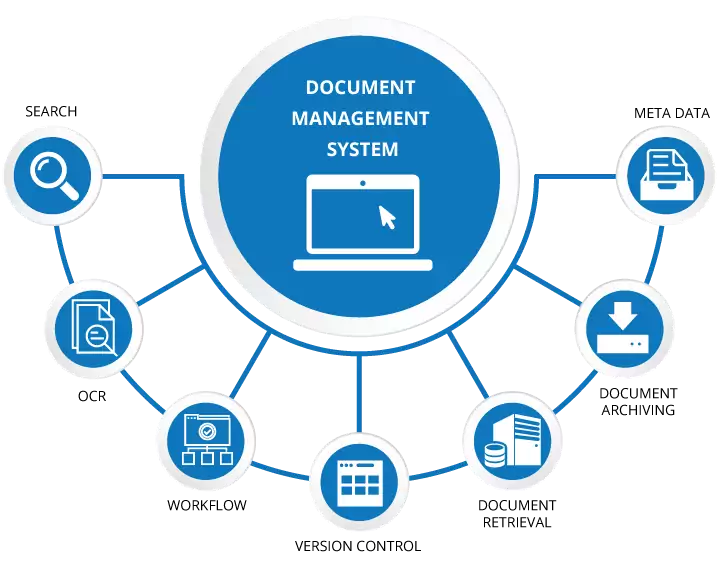
In today’s fast-paced business environment, managing documents effectively is critical for maintaining productivity and efficiency. A Document Management System (DMS) is a solution designed to streamline how documents are handled throughout their lifecycle. Whether it’s drafting, reviewing, publishing, or archiving, a DMS offers tools to simplify and optimize these processes.
What Is a document management system ?
A Document Management System is a software or platform used to manage, store, and retrieve documents electronically. It eliminates the need for manual processes, replacing them with digital workflows that are more reliable and secure. The system ensures that every document is accounted for and easily accessible, regardless of its stage in the lifecycle. By adopting a DMS, companies can reduce errors, improve collaboration, and save time.
Key Features of a Document Management System
A robust Document Management System typically includes features that enhance document handling and accessibility. These include:
- Centralized Storage: All documents are stored in a single, secure location, making them easy to retrieve and manage.
- Version Control: Keeps track of document revisions, ensuring the latest version is always accessible while preserving a history of changes.
- Access Control: Protects sensitive information by allowing administrators to assign specific access rights to users.
- Search Functionality: Advanced search tools enable users to locate documents quickly based on keywords or metadata.
- Collaboration Tools: Facilitates teamwork by enabling multiple users to work on the same document simultaneously.
Benefits of Using a Document Management System
Implementing a Document Management System offers a wide range of benefits that can transform how organizations handle their information. Here are some of the most significant advantages:
-
Enhanced Productivity
Employees spend less time searching for files and more time focusing on critical tasks. With a DMS, workflows become smoother, and processes move faster. -
Cost Savings
By going paperless, companies can cut costs related to printing, storage, and physical document retrieval. -
Improved Compliance
Many industries require strict adherence to regulations for document storage and handling. A DMS helps ensure compliance by maintaining audit trails and securing sensitive data. -
Data Security
Advanced encryption and user access controls protect documents from unauthorized access or breaches, safeguarding the company’s valuable information. -
Scalability
Whether a company is small or growing rapidly, a DMS can scale to meet its document management needs without requiring significant upgrades.
How Companies Use Document Management Systems
Businesses in various industries leverage Document Management Systems to meet their unique challenges. Here are a few examples:
- Healthcare: Ensuring patient records are stored securely and remain accessible when needed.
- Legal Firms: Managing large volumes of case files and legal documents with precision and confidentiality.
- Manufacturing: Organizing technical documents, blueprints, and compliance records in a centralized location.
- Education: Streamlining administrative tasks and maintaining student records digitally.
Choosing the Right Document Management System
Selecting a Document Management System that aligns with an organization’s goals and requirements is essential. Here are some factors to consider:
- Ease of Use: The system should be intuitive and user-friendly to encourage adoption.
- Integration: Ensure the DMS integrates seamlessly with existing tools and software used by the company.
- Customization: Look for a solution that can be tailored to meet specific business needs.
- Support and Training: Reliable customer support and training resources are critical for successful implementation.
Future of Document Management Systems
As technology advances, Document Management Systems are becoming more sophisticated. Features like artificial intelligence (AI) and machine learning (ML) are being integrated into modern DMS platforms. These technologies enhance document categorization, automate routine tasks, and improve overall efficiency.
By embracing innovations, businesses can future-proof their operations while continuing to enjoy the core benefits of a Document Management System.


